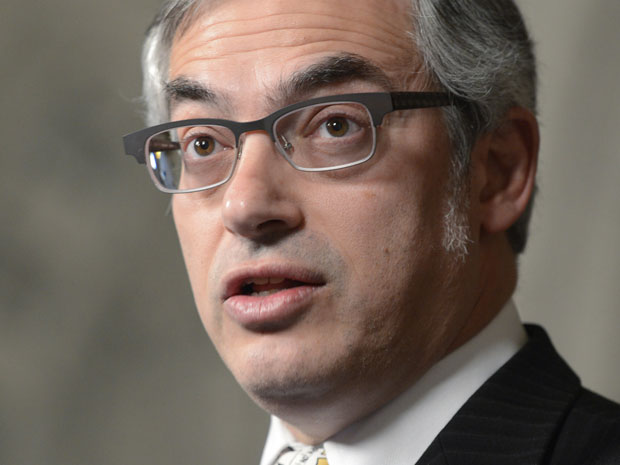
A New Year, A New Round of Bad Budgetary News
Money may no longer grow on trees but that hasn’t stopped the Conservatives from spending it like there is no tomorrow. Don’t let their austerity fool you, as they cut the services that are vital for the Canadian economy to function, they are funding new senators, a campaign to inform Canadians about the death of the penny, and funny enough, spending much more than the amount that they cut as part of the austerity package.
The Parliamentary Budget Office has released a new report that suggests that despite a 4% cut in direct federal government services, spending in bureaucracy is on an incline. Internal services such as communications, information technology, human resources and financial management rose 8%. In the end of the day, an austerity plan that was meant to tackle Canada’s soaring deficit and hopefully one day restrain Canada’s record debt has only resulted to a 0.6% decrease in spending for the first six months of this fiscal year which ends on March 31. The report adds that capital expenditures, particularly in the Department of Defense rose by nearly 7% in the first half of the fiscal year.
This is an about face to what the Conservatives said they were going to do. Treasury Board President Tony Clement explained last year that direct services would not be effected by cuts as the bulk of cuts would be made to administration and bureaucracy which clearly hasn’t happened.

Conservative spending doesn’t end there. Despite having the most competitive corporate tax rates and having a relatively stable economy, the Conservatives have opted to use taxpayers’ money in times of fiscal restraint to pay for trips to China for some of Canada’s top CEOs. The CEOs and the government defend the expenditure as a good investment as they try to open new business markets overseas. Given the amount of money that CEOs make and how essential these trade talks are for them, it is worth noting that a good investment is still a good investment if CEOs can cover the expenses themselves. With billions of dollars of bonuses and a flexible economic framework, there is no denying that this ounce of corporate welfare was not only a waste of taxpayers’ money but it was unnecessary as the private sector would naturally have conducted those meetings and paid for the expenses of those meetings on its own. Ironically, while welfare was given to companies that don’t need it, the media that joined the meetings were forced to pay their way. The Canadian Press was given a bill from the Privy Council of $4,607.

While traveling can cost a pretty penny, the Conservatives have decided that pennies are too expensive – they also decided that plastic bills that stick together were a wise investment in creating new bills. Meanwhile, projected savings from deleting the coin have proven to be offset by other expenditures and it will be interesting to watch businesses adapt to the new rounding rules that only apply to cash exchanges. Meanwhile, some Canadians have been receiving info cards in the mail. The info cards detail the new rounding rules and state that the penny is too expensive. The irony of the matter is the price of printing and distributing those cards likely cost more than a penny and with their inflated budget of ad campaigns and mismanagement, one can find many ways to have kept the penny and saved the hardship of businesses and consumers that will result of the changes.
We all know that the Conservatives say they are for small government but we also know that their track record says otherwise. Adding 30 new MPs and having the largest senate appointment in Canada’s history – not to mention all the new bureaucrats in the Prime Minister’s Office – may have been enough of an indicator that the government size would increase and that the amount we spend on pensions and salaries would too. Stephen Harper added five more friends to the senate in times of fiscal restraint (and even if the economy was cruising in surpluses this appointment would still be unnecessary). There is only 1 vacant seat left in the 125 seat Upper House and with 65 Conservative senators to date, Harper has reassured himself that the control he has over the senate will be long lasting and without any issues – he could have stopped about 20 appointments ago.
For those who are curious, here are the five new senators that were appointed.
- Denise Batters, a Regina lawyer and mental-health advocate whose late husband, former MP Dave Batters, committed suicide.
- Lynn Beyak, a small business owner from Dryden, Ont., with experience in real estate, insurance and tourism.
- Doug Black, a Calgary lawyer, as well as vice-chair and senior counsel of the law firm Fraser Milner Casgrain LLP.
- Victor Oh, a Mississauga, Ont., entrepreneur and president of Wyford Holdings, a property development and management business.
- David Wells, a St. John’s executive who most recently served as deputy CEO of the Canada-Newfoundland and Labrador Offshore Petroleum Board.
Source: CBC News
So much for senate reform… Perhaps we should abolish the Senate and adapt the House of Commons to assign back bench MPs the tasks that would be done in the senate – just a suggestion.
Canada is still in deficit, services are about to deteriorate and bureaucracy is at all time highs, are you happy with the Conservatives’ handling of the economy?



